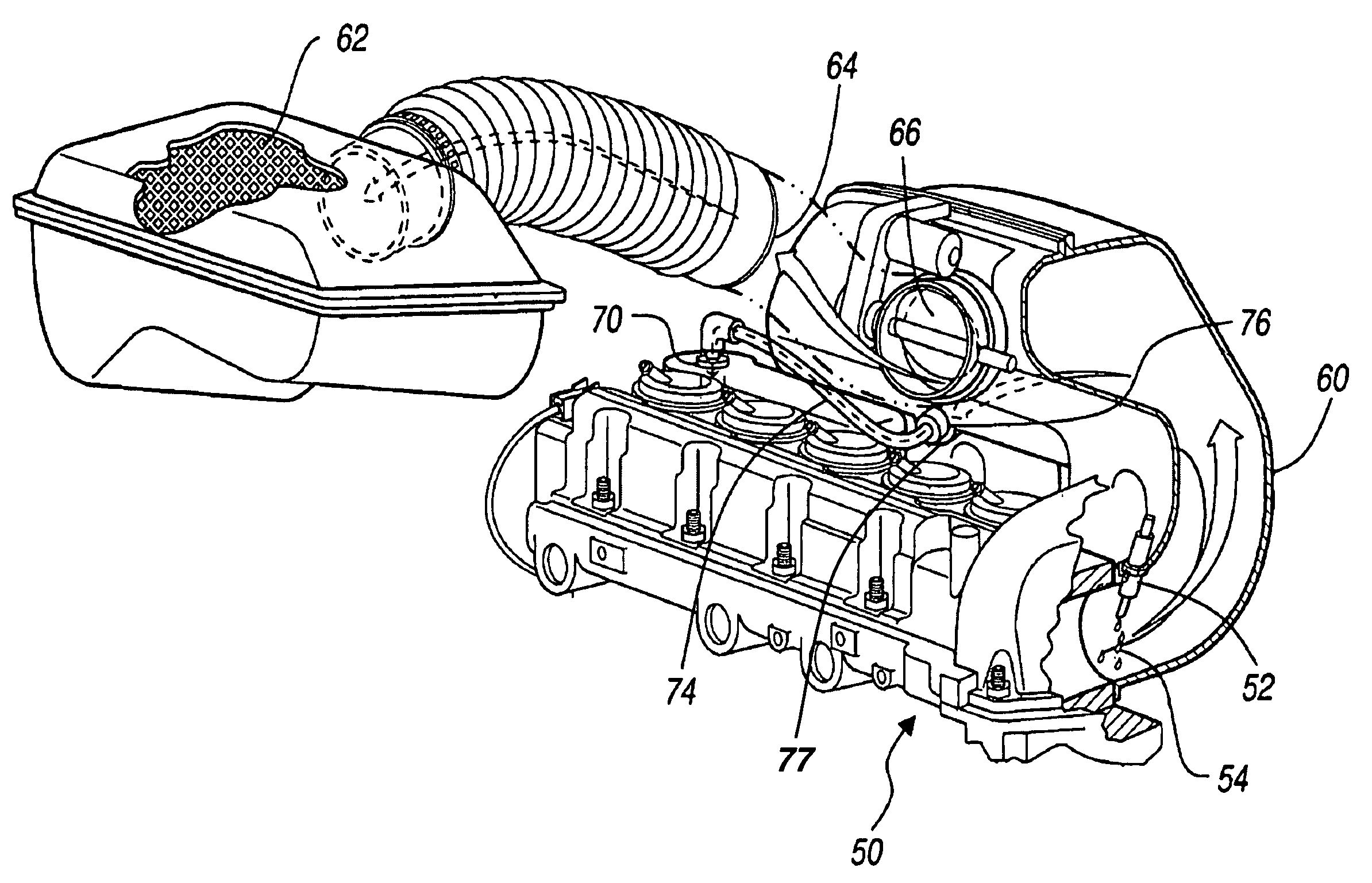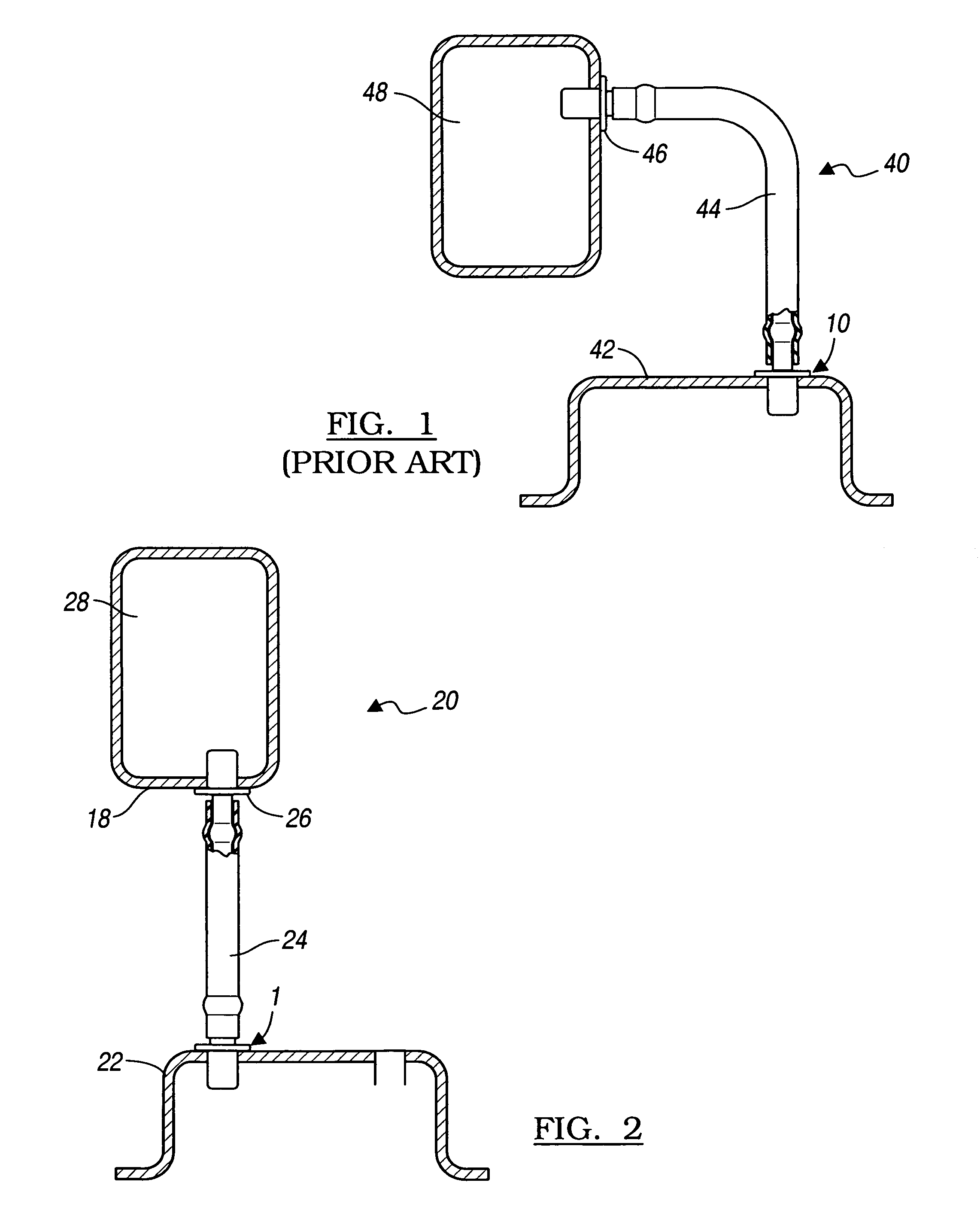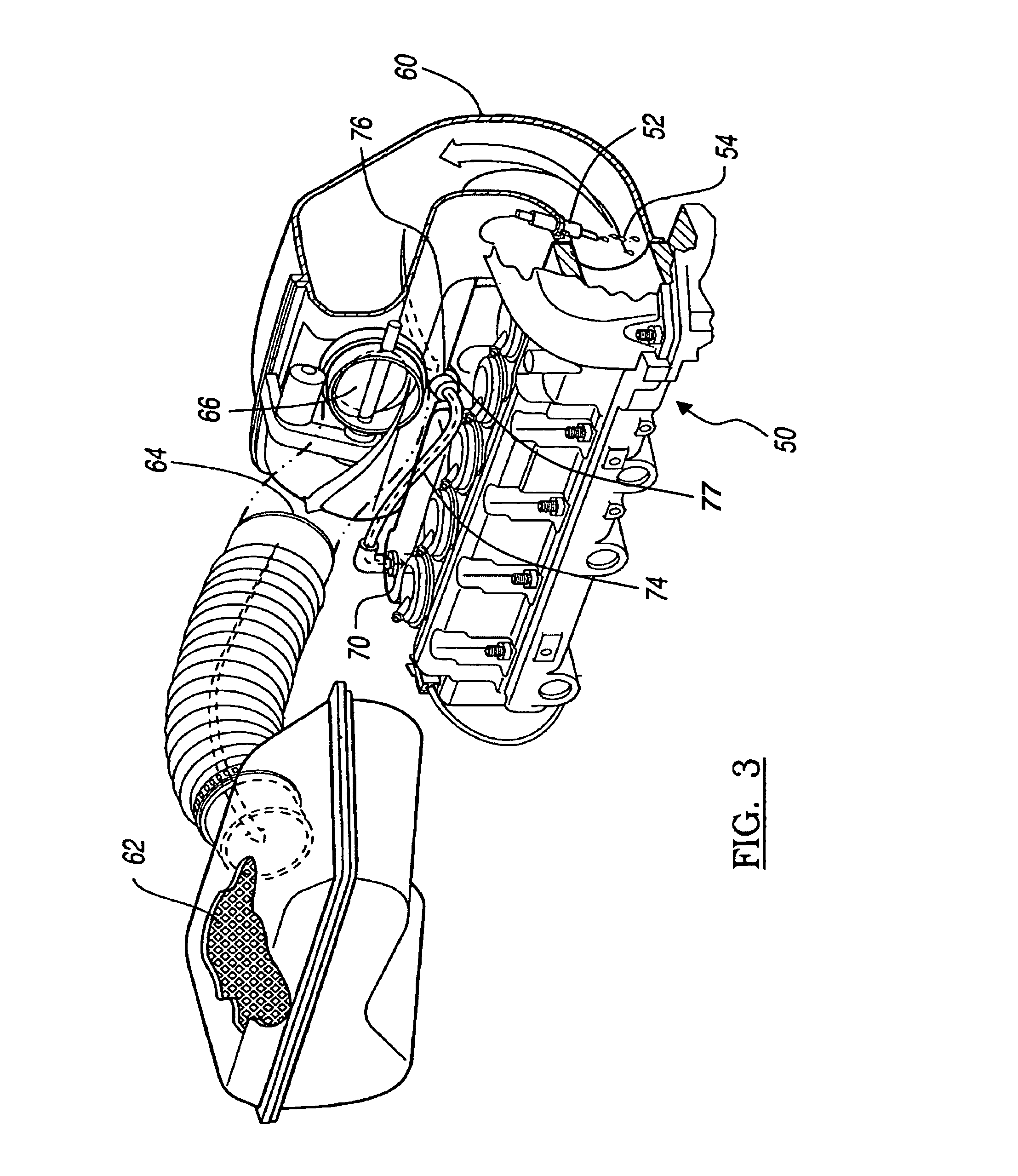Control of induction system hydrocarbon emissions
a technology of induction system and hydrocarbon emission control, which is applied in the direction of liquid fuel feeders, machines/engines, combustion air/fuel air treatment, etc., can solve the problems of adding cost and complexity to the manufacture of vehicles, and achieve the effect of reducing or preventing hydrocarbon emissions of residual hydrocarbons
- Summary
- Abstract
- Description
- Claims
- Application Information
AI Technical Summary
Benefits of technology
Problems solved by technology
Method used
Image
Examples
Embodiment Construction
[0014]The following description of the preferred embodiment(s) is merely exemplary in nature and is in no way intended to limit the invention, its application, or uses.
[0015]Positive crankcase ventilation (PCV) systems reduce emission of contaminants by recirculating blowby gases and crankcase vapors into the engine cylinders for burning. During operation of an automotive vehicle with an internal combustion engine, crankcase vapors are drawn through a liquid separator and into the air intake manifold (a part of the air induction system) where they will be drawn into the cylinders by intake manifold vacuum. FIG. 1 schematically illustrates a prior art design of a positive crankcase ventilation orifice. In FIG. 1, PCV orifice 10 in engine PCV system 40 is mounted in an oil separation portion 42 of a cylinder head cam cover of the crankcase. The orifice 10 connects directly with a PCV hose 44 that leads to a fitting 46 on the engine intake manifold 48 for recirculating blowby and crank...
PUM
 Login to View More
Login to View More Abstract
Description
Claims
Application Information
 Login to View More
Login to View More - R&D
- Intellectual Property
- Life Sciences
- Materials
- Tech Scout
- Unparalleled Data Quality
- Higher Quality Content
- 60% Fewer Hallucinations
Browse by: Latest US Patents, China's latest patents, Technical Efficacy Thesaurus, Application Domain, Technology Topic, Popular Technical Reports.
© 2025 PatSnap. All rights reserved.Legal|Privacy policy|Modern Slavery Act Transparency Statement|Sitemap|About US| Contact US: help@patsnap.com



